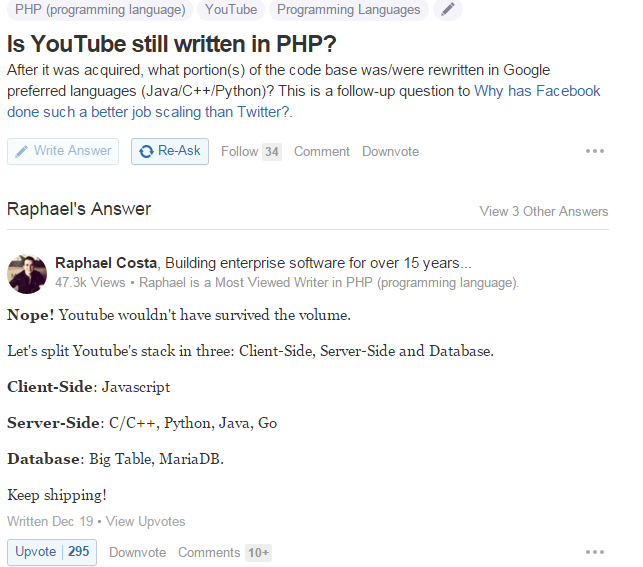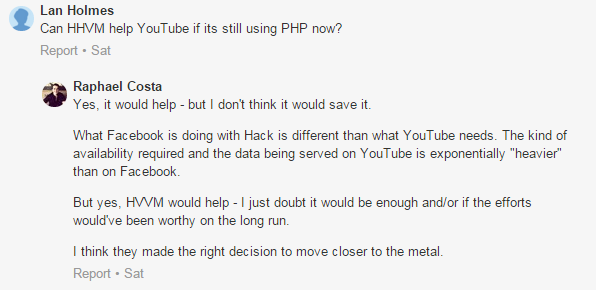As you may have noticed, I don't really have any ads on this site… or at least I didn't when I wrote this, but if you're reading this in the far future I probably sold out already.
Many blogs have way too many damn ads (this one too), talking ads, tons of garbage in the way all the time, making your computer go slow with god awful JavaScript and even more terrible Flash video or needlessly super high 4K HTML5 video.
You complain and nobody listens, they just say "that doesn't happen on my computer!"
Liar.
So there are ad blockers, but that hurts publishers because there's no ads to make money.
So there are solutions like Flattr and browsers like Brave which seek to fix this problem by having users put in money and then distribute the money to the content they most like and/or consume the most.
Actually, that sounds awesome, innovative, genius even, and that's not sarcasm, it does sound really cool.
But of course there's a problem with it.
The reason ads make more money is because people are more likely to click on ads than they are to pay cash, in fact nearly no users at all will pay cash, even if it's an easy option. What do I base this on? Well, unlike many of you I interact with other human beings and don't simply work from my ultralibertarian Aeron chair thinking about the benefits of mutual exchange.
I often see people, primarily dorks from the development world, … so dorks like me, say things like "I'd pay for content if I liked it enough", well first of all these people aren't clicking ads anyway, but also it's total bullshit too. Most people will still watch commercials on broadcast TV than pay for subscription services (which often still have commercials these days), in fact the vast majority of people will do this… so suddenly you'll have an influx of people paying for your site about Magento hacks?
Give me a break, dude.
You may make some money from donations or subscriptions, but almost always you'll make far more money with ads. Yes I'm sure some dumb asses out there will say they make more money with subscriptions and donations than they ever did with ads, but that's probably because they:
- Have niche content consumed primarily by people like them who don't click ads.
- Have niche content which ad companies don't want to support, or if they do support they payouts are low (e.g. pornography)
- Are liars and they're just full of shit anyway, but think it makes them seem noble even though they may have never had ads on their site to begin with.
This whole thing reminds me of another issue, payments of software.
Remember that?
How you can be open source / free and just charge for support and accept donations!
Remember all the start ups that did that model… and then went right out of business? There are only a handful which made it work, and they all have a big brother (or sister, for the ladies out there)
like IBM or Oracle sponsoring them.
It's still an issue too, as I wrote about before in my post: The best way to support yourself being a free software developer is apparently getting another job.
And that's where this ten gallon hat of farts puts publishers in the same boat, because most people simply aren't going to donate, they aren't going to pay for the content they consume, and by blocking ads you are hurting publishers.
Some overload their sites for their clickbait articles, yes, but most sites aren't over the top and people really depend on it, it may only make $1,000 – $2,000 a month, and there's no way in hell anyone is gonna Flattr or Brave that much money for cats that look like Hitler pictures in posts about which restaurants have the best meat ball salad.
I'm sorry, it's not going to happen, and in the handful of cases it does is like suggesting playing the lottery, you're not helping.
As with the linked post above, it reeks of elitism and self-importance, but in an indirect way. If you are reading this I can gather that you:
- Probably are a developer or web designer, or work near them in some way.
- Probably never click ads.
- Possibly use an adblocker.
- Possibly have some sort of philosophy you think is in line with paying for content you like, but in reality you consume things all the time you wouldn't pay for anyway, such as simple fixes on a blog like this. Nobody's sent me money, but you cheap bastards link to my unicode and Geonames articles all the time.
So let's not break our arms trying to beat each other off, you may pay if you think it's cool enough, but even if you're there all the time, if you can get it for free, or you think maybe the publisher has slightly different politics than you, you probably won't ever pay, so don't try to pump sunshine up my skirt, I know you're full of shit.
If you asked me in public though, I'd totally lie and also say "yeah, I'd pay for content I like," but it'd be a lie, just like when you say it.
I do think services like Flattr and software like Brave are really cool and I want to somehow build a world where we can have those and good ads. I'm not just complaining, I do have some ideas in mind, but I lack experience in advertising so they could be absolutely terrible ideas, like have a browser or extension which does the following:
- White listing only approved ad companies; make the voting democratic in some way or have multiple private companies with different motives reach a consensus.
- Have a grey list when rules are violated, this can be done by users clicking a button near the ad to report it, and if enough do from enough places, it's automagical.
- Rules that we can all pretty much agree on like: no talking or auto-play, no intensive CPU usage, no HD video, no attempts to hijack the browser, and probably other stuff too. Google's own rules for their advertisers aren't too bad.
- Set a limit on ad to content ratio for each page load.
This alone will solve 99% of nonsense going on.
If you don't agree, I don't really care, but feel free to reply to express your opinion, and feel free to be as hostile as you want, because I'm going to return the favor, even if you agree with me.

